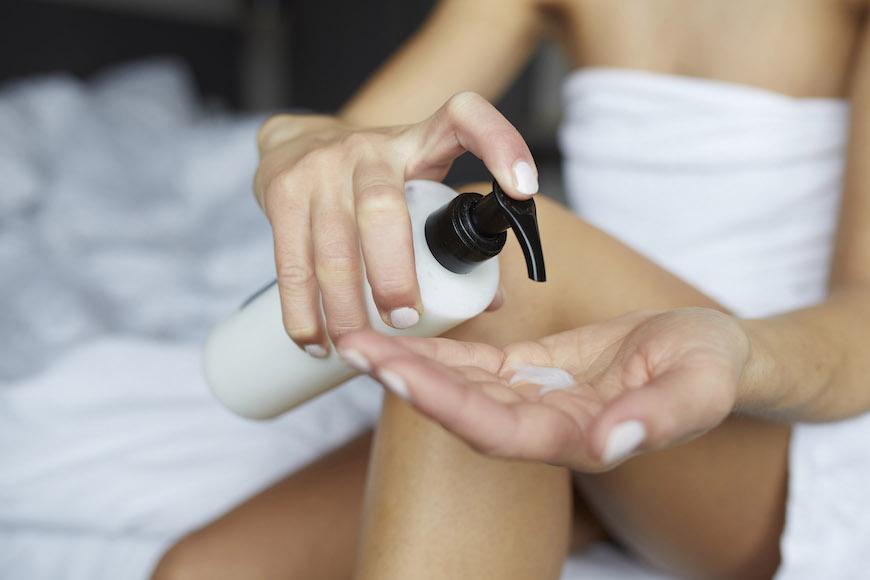
August 11, 2019 at 10:00AM by CWC
The spiderweb of white lines first appeared on my thighs when I was a junior in high school, and they’ve stuck around ever since. I know now that stretch marks are incredibly common—I challenge you to find me a woman with nary a stripe—and are scars that form when the collagen and elastin in your skin ruptures due to a quick change in size, which often happens during pregnancy, when someone gains weight or muscle quickly, or goes through puberty. (At first they appear red, then fade to white.) But for teenaged me, recovering from an eating disorder, they were a reminder of the fact that I was a bigger than I used to be.
To appease my disordered thinking that told me my stretch marks were A Problem, I loaded up on creams and gels that promised to banish them. I wish I knew then what three dermatologists have since confirmed for me: Stretch mark cream is a complete and total scam. Once you have the white stripes, Virginia-based dermatologist Lily Talakoub says, “don’t waste your time or money on stretch mark cream, because it won’t do anything.” Oh, the money I’d have saved!
“There is a greater chance of [stretch marks] going away when you treat them at the early stages,” Dr. Talakoub says, because “the redness can be treated with a laser that decreases the vasculature under the stretch mark and prevents that stretch mark from expanding.”
“Don’t waste your time or money on stretch mark cream, because it won’t do anything.” —Lily Talakoub, MD
“The only effective treatment is with laser,” confirms Adarsh Vijay Mudgil, MD, medical director of Mudgil Dermatology in New York. In a treatment called non-ablative fractional laser resurfacing, the skin is purposefully damaged in tiny “micro channels,” which stimulate collagen production and “tightens underlying skin,” according to the Mayo Clinic.
ADVERTISEMENT
ADVERTISEMENTKate Spade Autumn/Winter Sale |
New York-based dermatologist Estee Williams, MD, echoes that stretch marks are “one of the more difficult cosmetic skin conditions to treat,” but in addition to resurfacing lasers (such as ResurFX, AcuPulse, and Fraxel), she points to microneedling with platelet-rich plasma shots—which you may know as a “Vampire Facelift”—and microneedling with heat as effective treatments for stretch marks.
Effective, but not perfect. “The best treatments possible [which include microneedling and resurfacing lasers] will give you a 20 to 30 percent improvement,” says. Dr. Talakoub. “They will help, but they’re not going to erase them. There’s no eraser for stretch marks.” You may be able to help prevent them, she adds, by moisturizing with cocoa butter, rose hip oil, and coconut oil in stretching situations like pregnancy. But as me and my inner thigh stripes well know, once they’re there, they’re pretty much there for good.
Which leads me to the best way I’ve found to deal with my stretch marks: I’ve learned to love them.
A few years ago, I read an interview in which Orange Is the New Black star Danielle Brooks described her stretch marks as, “a map of her strength.” And man oh man, I loved that. Stretch marks are a reminder that our bodies can do some pretty amazing things—like, for example have babies, or in my case, recover—and sometimes, that can leave a permanent mark.
Stretch mark acceptance is very, very much a thing in 2019. Case in point: Chrissy Teigen and her stretch mark appreciation posts, which have shown us that life with stretchies really isn’t so bad. And if you still don’t believe it, check out these fabulous women who turned their own stretch marks into full-blown works of art.
Author Zoe Weiner | Well and Good
Selected by CWC
ADVERTISEMENT
ADVERTISEMENTUp to 30% off Gift Sets |







